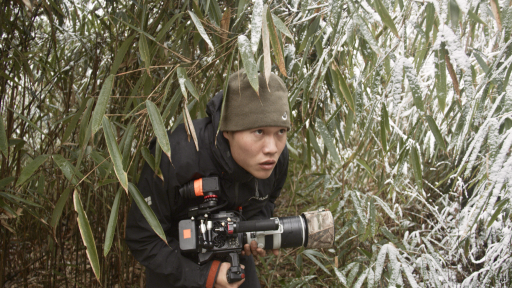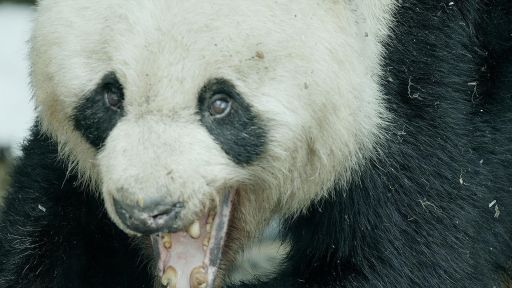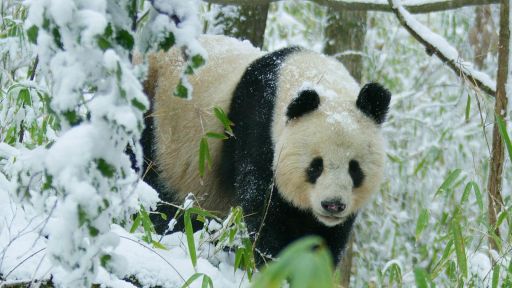The Giant Panda may be one of the most recognizable endangered species on our planet, but the daily lives of wild pandas remain a mystery, until now. Filming over three years, two Chinese cinematographers trek through the steep forested trails of the Qinling Mountains to catch a glimpse of wild pandas. With the help of scientists and rangers on this journey, they capture startling new wild panda behavior on screen. Unlike the playful image of captive pandas, wild pandas are solitary and territorial. The film crew also follows the training of a young panda born in captivity learning to be a panda in the wild.
Buzzworthy Moments:
- A young cub in the Wolong Panda Center, born to his mother through artificial insemination, will spend three years in a large enclosure in the reserve, separate from all other pandas and humans. He is being trained to be introduced into the wild when he reaches three years old. Under the guidance of his mother, he learns crucial skills such as climbing trees and exploration, although there is still a risk that he will become too attached to his mother.
- The mating and courtship rituals of wild Giant Pandas have never been filmed before. The filmmakers trek alongside park rangers in the Qinling Mountains to track down a male during the breeding season and eventually stumble on an exceedingly rare sight – a fertile female being fought over by two males. To succeed in courting the female, the males must win against their rival as well as a tussle with the female herself. This behavior sheds light on why breeding captive pandas is so difficult – the roaring, scent–marking and fighting are most likely what triggers her ovulation – conditions very difficult to replicate out of the wild.
- Since they are raising the young cub to never meet humans, the caretakers at the Wolong Panda Center come up with an unusual solution to perform health checkups on the cub. The workers dress up in panda costumes and even mask their scent with panda urine. The cub, with its poor eyesight, is left none the wiser.
- The majority of the panda cubs living in the Wolong Panda Center are extremely playful and social with their fellow pandas and caretakers. This is different behavior from pandas in the wild, who are mostly solitary creatures. It is still a mystery why captive pandas are more social than wild pandas.
Noteworthy Facts:
- There are only around 2,000 Giant Pandas left in the world today. Although they are members of the bear family, pandas do not hibernate and therefore must keep feeding even throughout the winter months.
- Bamboo is a panda’s main food source; however, it does not provide much nutrition. In order to maintain their energy, they must eat bamboo up to 14 hours each day.
- The milk in a Giant Panda mother contains more antibodies than any other animal because cubs are born incredibly vulnerable and underdeveloped. Females can only have 3-4 young in their lifetime, the lowest birth rate of any mammal.



